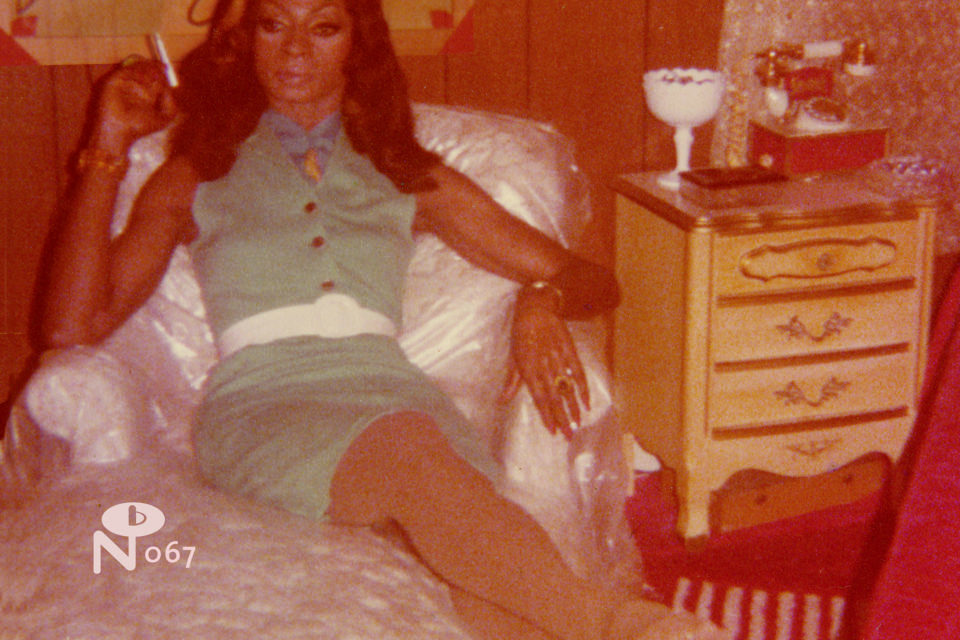“I found out early that you cannot be too much in this world,” Jackie Shane said when she was nearing the final years of her life. “You can’t. It’s impossible.”
She was speaking to the author of the liner notes for her late-career boxed set, Any Other Way, a rare and lavish document of a performing life set apart by how stunningly self-possessed it was.
Born in 1940, Shane came of age in Nashville during the Jim Crow, pre-Stonewall 1950s, already identifying assuredly as a Black girl in a Black boy’s body by the time she entered her teens. She got her first performing experience in charismatic churches and clubs along Jefferson Street, creating her own technique of standing behind the drum kit to play and sing at the same time. There, she crossed paths with other budding legends. Joe Tex admired her abilities, and Little Richard inspired her early ecstatic, rocking style, but she very quickly developed a fiercely dignified presence that was all her own.
Shane left Nashville with a carnival tent show just before the end of the decade, and made her way to Toronto, where she felt there were fewer threats to her freedom. There, fronting a horn combo, she was a revelation to R&B lovers, intense in her eye contact, elastic in her expression and flashy in her appearance. She wrote some of her material, and also interpreted others’ songs with profound feeling.
Without fail, Shane insisted on the worth of her gifts and labor. She’d made only a handful of live and studio recordings before she got fed up with people in the business stealing credit, demanding undeserved cuts of her income and even worse abuse, and withdrew from the spotlight on her own terms in 1971. Eventually returning to Nashville, she lived a willfully private existence until the Numero Group project brought her short yet singular career belated recognition 2017. In one of the few interviews she agreed to at that time, she put an end to her misgendering, establishing once and for all that she was a trans woman. Even then, it was clear that she felt no particular need to explain herself to the world.
These eight essential performances communicate plenty.
Shane’s sole performance on American television was the number she did on the Nashville R&B show “Night Train”:
Compared with versions recorded by other artists, Ray Charles included, Shane’s rendition of “Sticks and Stones” is a hopped-up, furious-paced boogie. But she sounds absolutely in her element, nimbly hurtling through verses that shrug off judgment.
In the country and bluegrass classic “You Are My Sunshine,” often given a brisk and buoyant treatment, she found a subtext of excruciating absence.
“Any Other Way” had done well for Stax’s William Bell, but Shane slowed it down and embroidered it with the anguish of keeping up appearances in the face of romantic loss. She slyly softened her phrasing, and applied vulnerable vibrato in the rendition that gave her a regional, Canadian hit.
“I wanna know if I’ll ever be free,” she demands during the bluesy “Cruel Cruel World,” one of her originals. Before the track is over, she attacks her syllables in eruptive, imperative bursts.
“Stand Up Straight and Tall” captures one of her grittiest performances.
Shane had her own way of incorporating the power of the testifying she’d witness in church into her on-stage monologues. While the band vamped in the middle of a song, she was unafraid to speak her truths. The greatest example of her sermonizing raps captured on tape is in her live version of “Money (That’s What I Want).” “You know, when I’m walkin’ down Yonge Street, you won’t believe this,” she started out, drawing in her audience. “But you know, some of them funny people have the nerve to point a finger at me and grin and smile and whisper. But you know, that don’t worry Jackie, because I know I look good. And every Monday morning, I laugh and grin on my way to the bank, because I got mine. …You know what my slogan is? Baby, do what you want. Just know what you’re doing. As long as you don’t force your will and your way on anybody else, live your life, because ain’t nobody sanctified and holy.”

